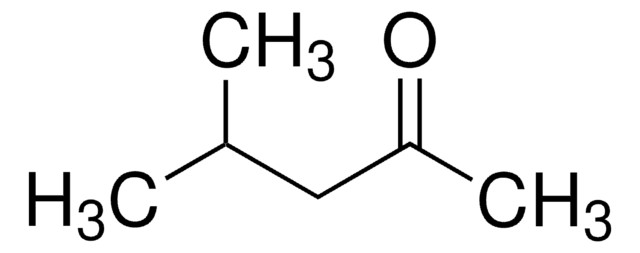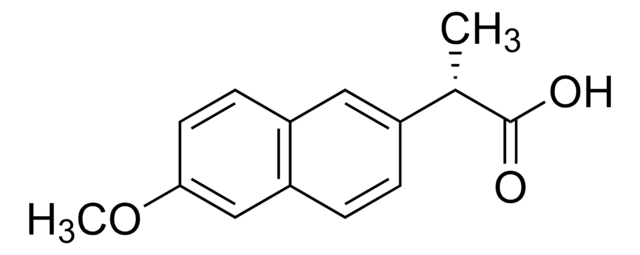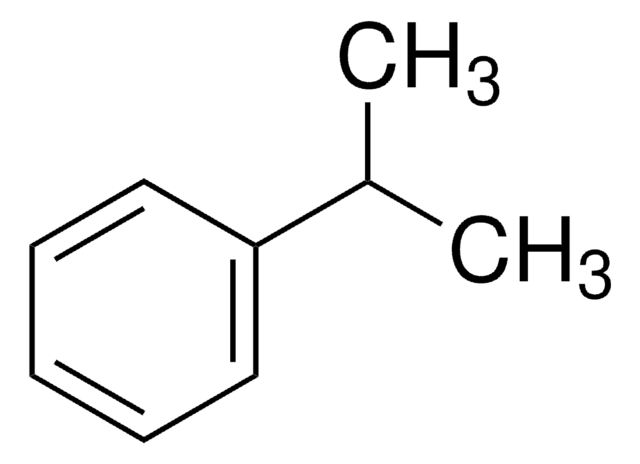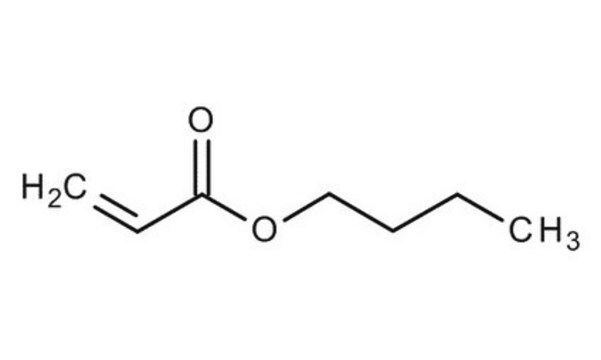PHR1556
4-Methyl-2-pentanone
Pharmaceutical Secondary Standard; Certified Reference Material
Synonyme(s) :
4-Methyl-2-pentanone, Isobutyl methyl ketone, Isopropylacetone, MIBK, Methyl isobutyl ketone
About This Item
Produits recommandés
Qualité
certified reference material
pharmaceutical secondary standard
Niveau de qualité
Agence
traceable to USP 1430203
Densité de vapeur
3.5 (vs air)
CofA (certificat d'analyse)
current certificate can be downloaded
Température d'inflammation spontanée
840 °F
Limite d'explosivité
1.2-8 %, 93 °F
Conditionnement
ampule of 3x1.2 mL each
Technique(s)
HPLC: suitable
gas chromatography (GC): suitable
Indice de réfraction
n20/D 1.395 (lit.)
pb
117-118 °C
Pf
−80 °C (lit.)
Densité
0.801 g/mL at 25 °C (lit.)
Application(s)
pharmaceutical (small molecule)
Format
neat
Température de stockage
2-30°C
Chaîne SMILES
CC(C)CC(C)=O
InChI
1S/C6H12O/c1-5(2)4-6(3)7/h5H,4H2,1-3H3
Clé InChI
NTIZESTWPVYFNL-UHFFFAOYSA-N
Vous recherchez des produits similaires ? Visite Guide de comparaison des produits
Description générale
Application
Remarque sur l'analyse
Autres remarques
Note de bas de page
Produits recommandés
Mention d'avertissement
Danger
Mentions de danger
Conseils de prudence
Classification des risques
Acute Tox. 4 Inhalation - Carc. 2 Inhalation - Eye Irrit. 2 - Flam. Liq. 2 - STOT SE 3
Organes cibles
Central nervous system
Risques supp
Code de la classe de stockage
3 - Flammable liquids
Classe de danger pour l'eau (WGK)
WGK 1
Point d'éclair (°F)
57.2 °F - closed cup
Point d'éclair (°C)
14 °C - closed cup
Faites votre choix parmi les versions les plus récentes :
Certificats d'analyse (COA)
Désolés, nous n'avons pas de COA pour ce produit disponible en ligne pour le moment.
Si vous avez besoin d'assistance, veuillez contacter Service Clients
Déjà en possession de ce produit ?
Retrouvez la documentation relative aux produits que vous avez récemment achetés dans la Bibliothèque de documents.
Les clients ont également consulté
Articles
Butyl methyl ether; Acetic acid; 2-Butanone; Ethyl acetate; Tetrahydrofuran; 1-Butanol; Isopropyl acetate; Heptane; Propyl acetate; 3-Methylbutanol; 4-Methyl-2-pentanone; Isobutyl acetate; Butyl acetate; Dimethyl sulfoxide; Anisole; Cumene
Protocoles
Separation of 4-Methyl-2-pentanone; Dimethyl disulfide; Hexanal; 3-Methylpentane; Acetone
Protocol for GC Analysis of Class 3 Residual Solvents on SUPELCOWAX® 10
US EPA Method 8260 describes the analysis of volatile organic compounds in solid wastes and ground waters. This application illustrates the analysis of many compounds commonly analyzed by this method using purge and trap coupled to GC-MS.
Notre équipe de scientifiques dispose d'une expérience dans tous les secteurs de la recherche, notamment en sciences de la vie, science des matériaux, synthèse chimique, chromatographie, analyse et dans de nombreux autres domaines..
Contacter notre Service technique













